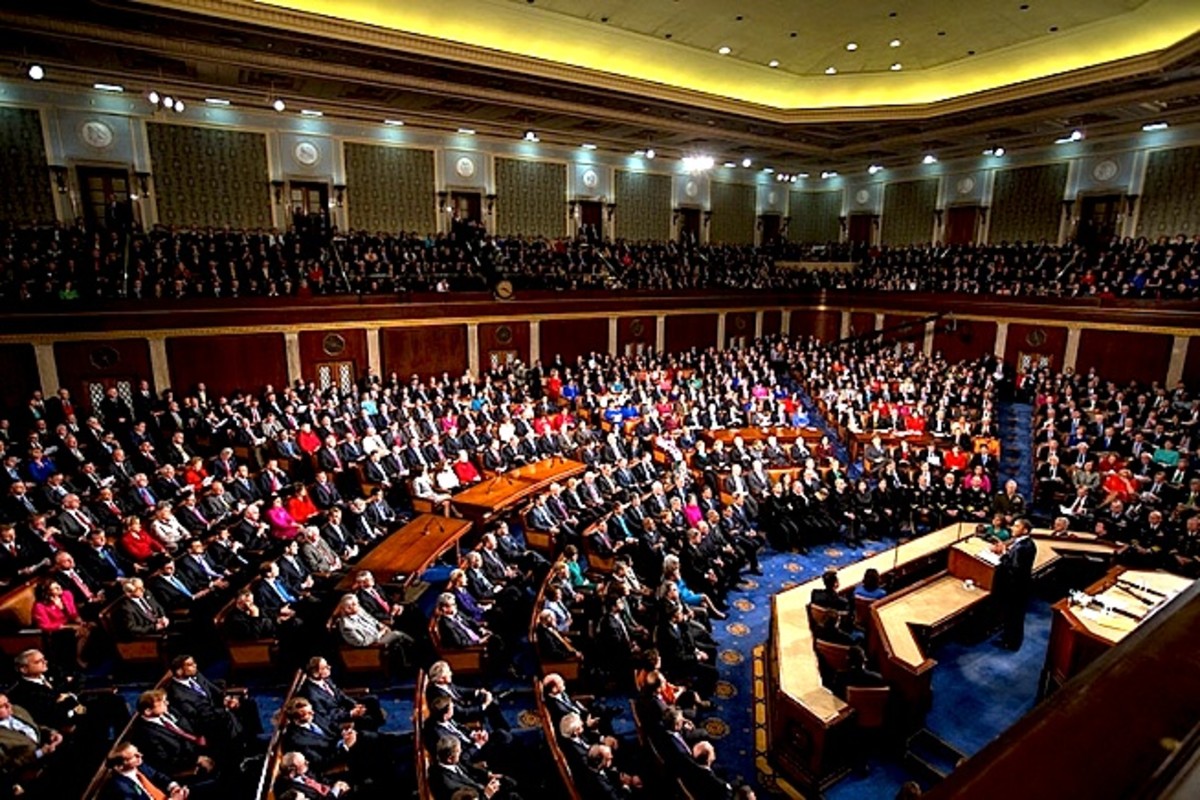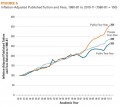Student Loan Debt Into Retirement? What the Heck Is Going on Here?

Sometimes a story presents itself as a sob story, but instead of pulling at your heartstrings, it instead makes you pause and wonder.
Wait a minute—why is this supposed to be a sob story?
I recall one such tale shared with me by a man in his mid-70s, still working full time. He often spoke about wanting to retire, but according to him he couldn't afford to. Knowing he owned his home—one that he'd lived in for five decades—I assumed it was paid off. What financial burdens could he possibly have beyond medical bills or a few credit cards?
I knew his car was paid for. It was a later model, well maintained, and rarely in the shop. So, there was no car payment to worry about, and he was hardly in the market for a new one.
Then one day he confided in me: "I have a mortgage."
For me, that was the moment the story took a turn. How could I be sympathetic? I mean, how does one live in the same house for 50 years and still carry a mortgage? Not only that, but the mortgage he had then was more than twice what he paid for the house 50 years before our conversation.
No longer was it a sob story, but rather one of mistakes that were made.
Which brings us to the broader issue of student loan debt in this country—the ongoing debate over forgiveness that former President Biden championed, and the expiration of covid-era relief that temporarily halted collection efforts.
Of course, we've heard the familiar narrative: a graduate buried under student loan debt, struggling to make ends meet. But hold on—just like the man in his 70s still paying off a mortgage, isn't there more we should be questioning?
How did we get here, and what's being left out of the conversation?

Like most sob stories, the issue isn't just one isolated problem—it's a tangled web of interconnected challenges, each adding to the story in a way that makes it much more forlorn and more sellable.
The interest is not so much to make you understand the pain. It's to make you simply feel it for the person subjected to it.
With the expiration of the covid-era relief from collection efforts, wages can once again be garnished for federal student loans. But it doesn't stop there—government benefits, including disability payments, tax returns, pensions, and yes, even Social Security checks received by retired seniors, are all up for grabs, and there are going to be people trying to stop it.
Because especially when it comes to retired seniors, many of whom may already be struggling financially, we just can't let this happen.
Can we?
Look, whether it's right or wrong, I don't even think that's what we should be asking. There are 2.9 million people over age 62 who are still defaulted on their student loans.
How in the world does that happen, and who's fault is it? Can we blame someone? Who, then, do we blame?
Is it the student's fault? The college's fault? Is it the fault of mean politicians who just don't care about old man Johnson down the street living entirely off Social Security barely scraping by already as it is?
It's a debt, right? Call it a contract, if you will. Someone agreed to lend a person money, and someone agreed to pay it back. In no transaction like this is there ever an exceptions clause.
"Okay, you have to pay this back...except when..."
I'm back to asking, "How does this happen?" Moreover, how come we are only focused on the sob story, but not interested in the bigger picture question? You mean to tell me that there are actually people that have left the workforce, decades out of college, who still have outstanding student loan debt?

Wasn't that supposed to be the entire promise of higher education? Get a degree, become more valuable in the job market, and ultimately earn more than those who chose not to pursue college.
It would seem to me that we have some very serious cracks in this narrative, if you ask me. Is the pay truly better? Does the price of tuition actually reflect the value of the education received?
Or has the college system simply been molded into an elaborate illusion, carefully designed to sell something unattainable? And what about that repayment part? Is it set up to be too lenient that someone can decide easily to pay very little back, or suffer few consequences if they decide to default?
Even when you examine President Biden's argument, wasn't he sort of acknowledging something isn't right about the way things are done when it comes to student loans? He wasn't saying that outright, of course. But it was still at least implied.
Things aren't fair, and we need to provide some much-needed relief.
But, at taxpayer expense, and without actually taking a deeper dive into the real problem. I don't think it takes a rocket scientist to see that something isn't right here. The question shouldn't be, "Do students need relief?" It should be "Why do they need it at all if the colleges are actually delivering on what it was that they sold in the first place?"
When do we get to ask the colleges why things don't seem to be adding up? I mean, it may sound silly to equate the two things, but if we can try to sue Subway because we think their footlong sub sandwich might actually be 11 inches long, or Burger King because their ads depict burgers much larger than what's served, surely, we can pose similar questions to a college.
How come your students are all broke? How come 2.9 million of them made it all the way to retirement and still can't pay for what you sold them?

Sure, look, I'm not at all a heartless person. I know life has many struggles. Some are circumstantial, while yet others are self-inflicted. Should college kids, and the parents who encourage their kids to go through all of this and take on such enormous debt be smarter?
Probably.
Yet, at the same time, having been in sales for many years, I also understand the "art of the deal," and how it is you word something to get someone to empty their wallets. It's not to suggest that everything sold is accomplished through deception. There's always at least some value offered, even if it might not always be the best deal, or even when the greater beneficiary of the closing still happens to be the salesman.
Someone told these kids one thing, and clearly it isn't true. Or, at least, it's only partially true.
I don't want to see grandpa have his Social Security check garnished any more than anyone else, even though I fundamentally agree that a debt is a debt, period, end of story. But I am also not going to simply side with grandpa, either, or accept the sob story for what someone is going to try to tell me it is.
It's not about grandpa, really, who can't pay his debt who might see his retirement whittled down by it. It's, as I asked before, more important to ask how grandpa got into this predicament in the first place?
That man in his 70s who couldn't afford to retire was because of one of a couple of possibilities. Either he was not very smart and allowed himself to fall into a trap, or someone led him blindly into it with a really good sales pitch.
It doesn't change the situation. But like most problems, they can't be solved if we don't bother to look beyond the situation and ask better questions. Or worse, if we fail to know what questions should be asked.
Because we're too focused on the what and not the how.
This content reflects the personal opinions of the author. It is accurate and true to the best of the author’s knowledge and should not be substituted for impartial fact or advice in legal, political, or personal matters.
© 2025 Jim Bauer








